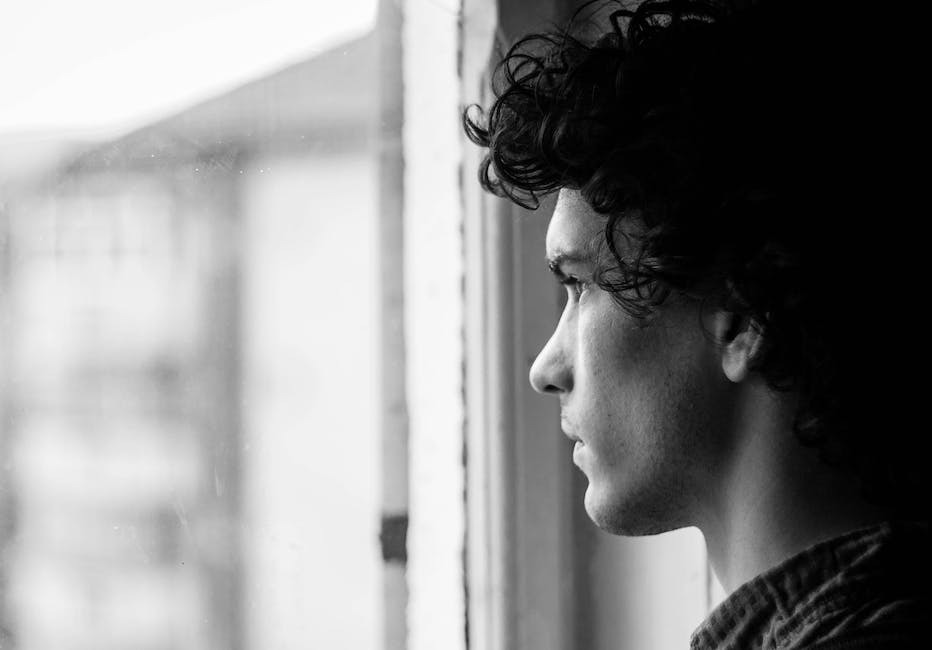Schizophrenia is a neurodevelopmental disorder that affects thought patterns, perception, emotional responses, and behaviors. Many people with schizophrenia have co-occurring substance use or mental health disorders that impact their ability to function from day to day. Men may have a higher risk of more severe side effects in some cases. According to Schizophrenia Research and Treatment, “Several studies have found gender differences in negative symptoms, showing that in males, they were more severe.” Alter San Diego Intervention provides personalized treatment options and crisis intervention to help people struggling with schizophrenia.
Men May Have a Higher Risk of Developing Schizophrenia
Research indicates that younger men have a higher risk of developing schizophrenia. According to the Journal of Translational Neuroscience, “Clinical observation shows that men and women are different in prevalence, symptoms, and responses to treatment of several psychiatric disorders, including schizophrenia.” The exact causes for these differences are not yet known. Some possible risk factors for developing schizophrenia include:
- Family history of schizophrenia
- Birth complications such as exposure to toxins or viruses
- Misusing mind-altering substances, including marijuana, during adolescents and young adulthood
- Structural or chemical changes to the brain
- Severe childhood trauma, including abuse and neglect
Several types of schizophrenia exist, including:
- Paranoid schizophrenia
- Hebephrenic schizophrenia
- Catatonic schizophrenia
- Undifferentiated schizophrenia
- Residual schizophrenia
- Simple schizophrenia
- Unspecified schizophrenia
Men and women can both develop these different types of schizophrenia. However, the presentation of symptoms and treatment needed may differ significantly between genders.
The Phases of Schizophrenia
Schizophrenia has distinct phases that can affect people in different ways. Men may have more severe symptoms compared to women during certain times in their lives. The opposite is also true in some cases.
Below are brief descriptions of the three main phases of schizophrenia experienced by most individuals:
#1. Prodromal phase: the beginning of behavioral changes, mild symptoms, and deterioration of objectivity.
#2. Active phase: noticeable symptoms of psychosis, including delusions, disordered thinking, hallucinations, and disorganized speech.
#3. Residual phase: severe symptoms may fade, although irrational beliefs and isolating behaviors often continue.
No cure exists for schizophrenia. However, men struggling with the condition can manage it with the help of structured treatment and medication. If you have schizophrenia, you can successfully cope with the symptoms and manage your condition using evidence-based methods personalized to your unique situation. Alter San Diego Crisis Intervention can give you the tools you need to recover.
4 Primary Symptoms of Schizophrenia During the Active Phase
The active phase of schizophrenia causes the most damage if left undiagnosed or untreated. Loved ones may find the symptoms disturbing or confusing, and it can cause relationship issues.
Family members may not recognize the active phase and react in a way that causes additional pain and distress—understanding the symptoms and knowing what to expect can reduce stress and improve treatment outcomes. The following four symptoms of schizophrenia begin during the active phase and often appear with little warning.
#1. Hallucinations
Auditory, tactile, olfactory, and visual hallucinations appear completely real to the person experiencing them. Men diagnosed with schizophrenia most frequently experience auditory and visual hallucinations. According to the Industrial Psychiatry Journal, “Visual hallucinations in schizophrenia have a predominance of denatured people, parts of bodies, unidentifiable things and superimposed things.” Everyone experiences hallucinations differently, and their subject varies significantly from person to person.
#2. Disordered Thoughts
During the active phase of schizophrenia, most people experience disordered thinking that impacts speech and writing. Language and thoughts may sound or appear chaotic, out of order, or irrational.
#3. Unorganized Speech
Although unorganized speech is related to disordered thinking, it can have multiple causes and present in different ways. According to Language and Linguistics Compass, “it arises from abnormalities in (a) semantic memory and/or (b) working memory and executive function.” Mental health treatment, prescription medication, and speech therapy can help people struggling with disorganized speech.
#4. Breaking From Reality
Psychosis is a form of breaking from reality that causes people with schizophrenia to feel, sense, or experience things that are not actually present. During a psychotic episode, people with schizophrenia cannot differentiate between reality and the unreal things they witness, think, or feel.
Symptoms of Schizophrenia in Men
According to StatPearls Publishing, individuals diagnosed with schizophrenia may experience the following symptoms for a month or more:
- “Thought insertion”
- “Delusions of control, influence, or passivity”
- “Hallucinatory voices providing a running commentary”
- “Persistent delusions that are culturally inappropriate or implausible”
Men with schizophrenia may experience the following more frequently than women:
- Disinterest in relationships
- Lack of motivation
- Ambivalence
- Sleep disturbances
- Difficulty leaving the house
- Self-harm or suicidal ideations
- Homelessness
- Financial instability
- Relationship issues
In many communities, men have fewer mental health services compared to women, contributing to the high percentage of untreated and homeless men diagnosed with schizophrenia. Alter San Diego Crisis Intervention offers comprehensive schizophrenia treatment in La Mesa, Sand Diego and nearby areas, for individuals struggling with this mental disorder and other mental health disorders.
In some cases, men may have more severe symptoms of schizophrenia. However, researchers cannot determine what causes the significant differences between genders. Many factors no doubt play a role in the changes that take place during each stage of the disorder. In most cases, schizophrenia causes people to slowly develop more unusual behaviors over a period of time. The disordered thinking and unusual behaviors often set them apart from others, making it difficult for them to get the help they need. Men, especially, have fewer resources for treating and recovering from the effects of schizophrenia. Alter San Diego Crisis Intervention provides crisis stabilization and personalized treatment for men struggling with schizophrenia and co-occurring disorders. Learn more by calling (866) 986-1481.

